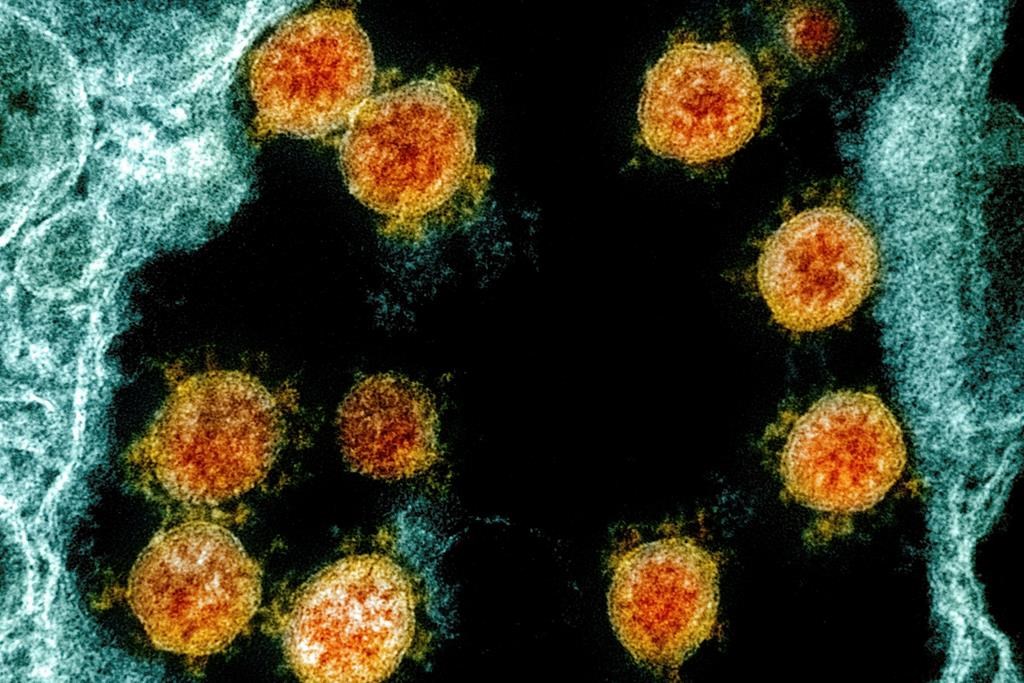Hamilton, Ont., reported another death connected to the COVID-19 pandemic on Friday.

The city’s 36th death was a 64-year-old man from the community who passed away in hospital on Wednesday.
Public health has 10 new cases of COVID-19 as of Friday, bumping up the city’s total number of cases to 674 overall since the pandemic began.
The city’s count of confirmed positive cases now stands at 667 plus seven probable cases.
Four hundred-forty-four of the city’s 664 COVID-19 cases — or 66 per cent — have been resolved.
The city has six institutional outbreaks at four retirement residences (Aberdeen Gardens, Alexander Place, Desmond & Peggy Little Retirement home, and The Rosslyn), one long-term care home (Macassa Lodge) and the COVID-19 unit at Hamilton General Hospital.
Hamilton hospitals say, in all, they have 60 COVID-19 patients in care units — Hamilton Health Sciences has 31 while St. Joseph’s hospitals say they have 29.
During an update on Friday, the city’s medical officer of health said the operator of The Rosslyn retirement home is working with the Retirement Homes Regulatory Authority (RHRA) towards a potential reopening.
However, Dr. Elizabeth Richardson did not reveal anytime lines for the return of residents.
“We do still have the Health Protection and Promotion Act order in place, and we will not be reinspecting on that until they say they are ready to reopen,” said Richardson.
On Sunday, Premier Doug Ford announced the province was working with municipalities and regions to expand testing for people who are not showing symptoms but believe they may have been exposed to the novel coronavirus.
Richardson said the province’s recent guidelines on testing are the kind municipalities need and that city has “components” for its assessment and three testing centres “in place.”

Get daily National news
“We want to test as many people around as we can, and then we look at is there testing this needed beyond that, expanding beyond it,” Richardson said.
The city is also seeing favourable turnaround times with testing, according to public health
“I think we have something like 55 per cent coming back for our positives within 24 hours, and about 70 to 75 per cent within 48 hours,” Richardson said.
Niagara Region reports 1 new COVID-19 case
Niagara public health reported one additional case of COVID-19 on Friday. The region has a total of 635, with more than three-quarters of their total cases — 530 — resolved.
The region has 59 deaths, with 48 tied to nursing homes or retirement residences.
Two outbreaks were declared over on Thursday at two long-term care homes — Crescent Park Lodge in Fort Erie and Tufford Nursing Home in St. Catharines.
Niagara has six current outbreaks at two long-term-care homes (Kilean Lodge in Grimsby, and Royal Rose Place in Welland), three retirement homes (Albright Centre in Lincoln, West Park Health Centre in St. Catharines, Lundy Manor in Niagara Falls), and at one unit of the Greater Niagara General Hospital.
Haldimand-Norfolk reports 1 new COVID-19 case, outbreak on farm
Haldimand-Norfolk Health Unit (HNHU) reported one new COVID-19 case as of May 27. The region has 217 total lab-confirmed cases.
The region said it’s investigating an outbreak among migrant workers at a local farming operation. HNHU said three workers have been admitted to Norfolk General Hospital with COVID-19 symptoms, and one has tested positive for the disease.
The health unit said other workers are also being tested for the virus.
HNHU says 136 people have recovered since the pandemic began and 31 have died.
Halton region reports 7 new COVID-19 cases
Halton Region reported seven new cases of novel coronavirus on Friday. The region now has 709 total cases, 635 confirmed positive cases and 74 probable.
There are no new deaths as of May 29. The region has 25 deaths tied to COVID-19 with 11 from a confirmed outbreak at an institution.
Public health says more than 87 per cent (555) of its cases have now been resolved.
Halton’s five outbreaks — all at long-term care homes — include West Oak Village, Wyndham Manor, Bennett Centre, Creek Way Village, and Extendicare Halton Hills.
Seventy-eight of the region’s cases are connected to residents or patients in an institutional outbreak.
Brant County reports no new COVID-19 cases
Brant County’s health unit (BCHU) reported no new cases of COVID-19 as of May 29.
The region has 108 confirmed cases with three people receiving care in a hospital.
The county has four deaths and 95 total resolved cases.
There are no institutional or community outbreaks as of Wednesday.
Questions about COVID-19? Here are some things you need to know:
Symptoms can include fever, cough and difficulty breathing — very similar to a cold or flu. Some people can develop a more severe illness. People most at risk of this include older adults and people with severe chronic medical conditions like heart, lung or kidney disease. If you develop symptoms, contact public health authorities.
To prevent the virus from spreading, experts recommend frequent handwashing and coughing into your sleeve. They also recommend minimizing contact with others, staying home as much as possible and maintaining a distance of two metres from other people if you go out. In situations where you can’t keep a safe distance from others, public health officials recommend the use of a non-medical face mask or covering to prevent spreading the respiratory droplets that can carry the virus.
For full COVID-19 coverage from Global News, click here.










Comments